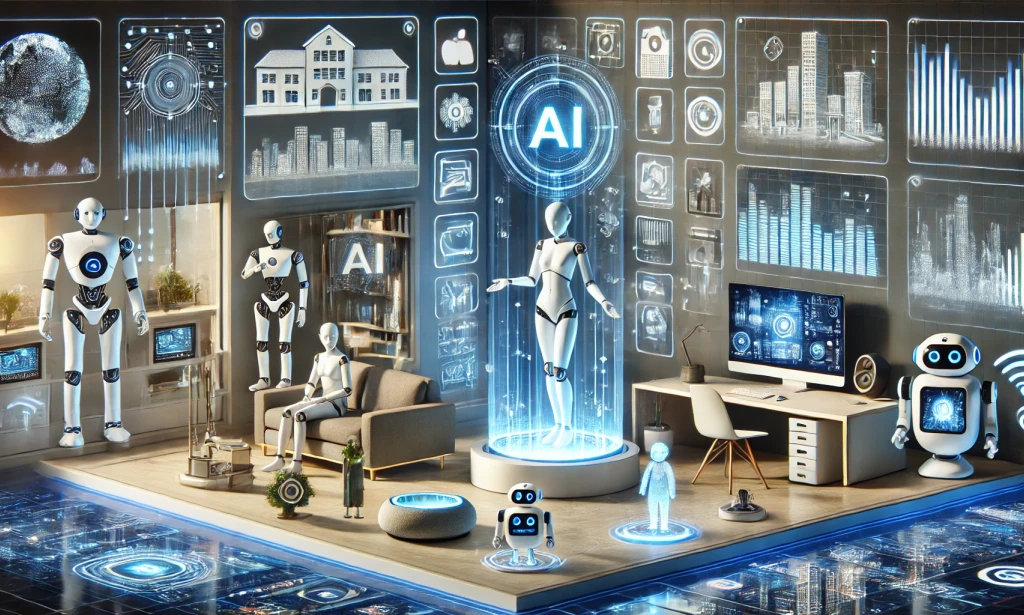Artificial Intelligence (AI) is no longer just a futuristic concept from sci-fi movies; it is an integral part of our daily lives and workplaces. From personal assistants like Siri and Alexa to cutting-edge technologies revolutionizing industries, AI is reshaping how we live, work, and interact with the world around us.
AI in Everyday Life
AI has seamlessly integrated into our daily routines, often without us even realizing it. For instance:
Personalized Recommendations: Streaming platforms like Netflix and Spotify use AI to analyze viewing and listening habits, offering tailored recommendations that keep users engaged.
Smart Home Devices: AI-powered systems like Google Nest and Amazon Alexa automate tasks such as adjusting thermostats, turning off lights, or even suggesting recipes based on available ingredients.
Healthcare: AI applications in health tech are helping diagnose diseases, monitor patient conditions, and even assist in surgeries, making healthcare more accessible and efficient.
Transportation: Autonomous vehicles, predictive traffic apps like Waze, and ridesharing platforms use AI to optimize routes, reduce travel time, and improve safety.
Transforming the Workplace
In the professional world, AI is revolutionizing traditional workflows, making businesses more efficient and productive:
1. Automation of Repetitive Tasks
AI-powered tools handle repetitive and time-consuming tasks such as data entry, customer service through chatbots, and invoice processing. This allows employees to focus on creative and strategic work.
2. Enhanced Decision-Making
Businesses now use AI-driven analytics to make data-informed decisions. For example, predictive analytics helps forecast market trends, optimize supply chains, and improve customer targeting.
3. Remote Work and Collaboration
With AI-enhanced tools like Zoom and Microsoft Teams, virtual meetings have become more effective, incorporating features like real-time transcription, automated note-taking, and background noise cancellation.
4. Skill Development and Training
AI platforms like Coursera and LinkedIn Learning offer personalized learning paths, helping employees upskill and stay competitive in a rapidly evolving job market.
Challenges and Ethical Concerns
Despite its benefits, AI comes with challenges:
Job Displacement: Automation threatens roles in industries like manufacturing and customer service, requiring workers to adapt to new skill sets.
Bias and Discrimination: AI systems can inherit biases from their training data, leading to unfair treatment in areas like hiring or loan approvals.
Privacy Concerns: The collection and analysis of massive amounts of data raise concerns about how personal information is used and protected.
The Future of AI
AI’s potential is boundless. In the coming years, we can expect advancements in areas like personalized healthcare, climate modeling, and even creative fields like art and writing. However, to fully harness AI’s power, governments, organizations, and individuals must prioritize ethical AI development, inclusivity, and collaboration.
Conclusion
AI is undeniably transforming the way we live and work, driving efficiency, innovation, and convenience.

Great job
Good work
You must be logged in to post a comment.